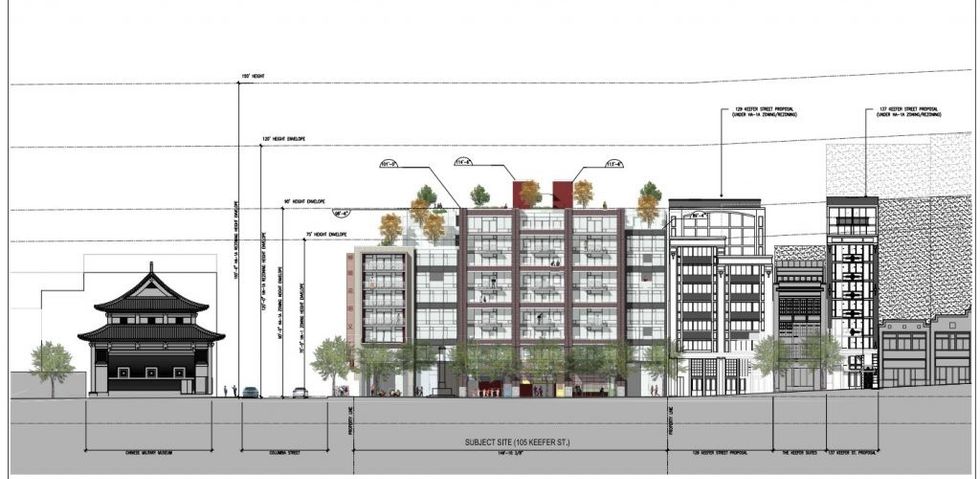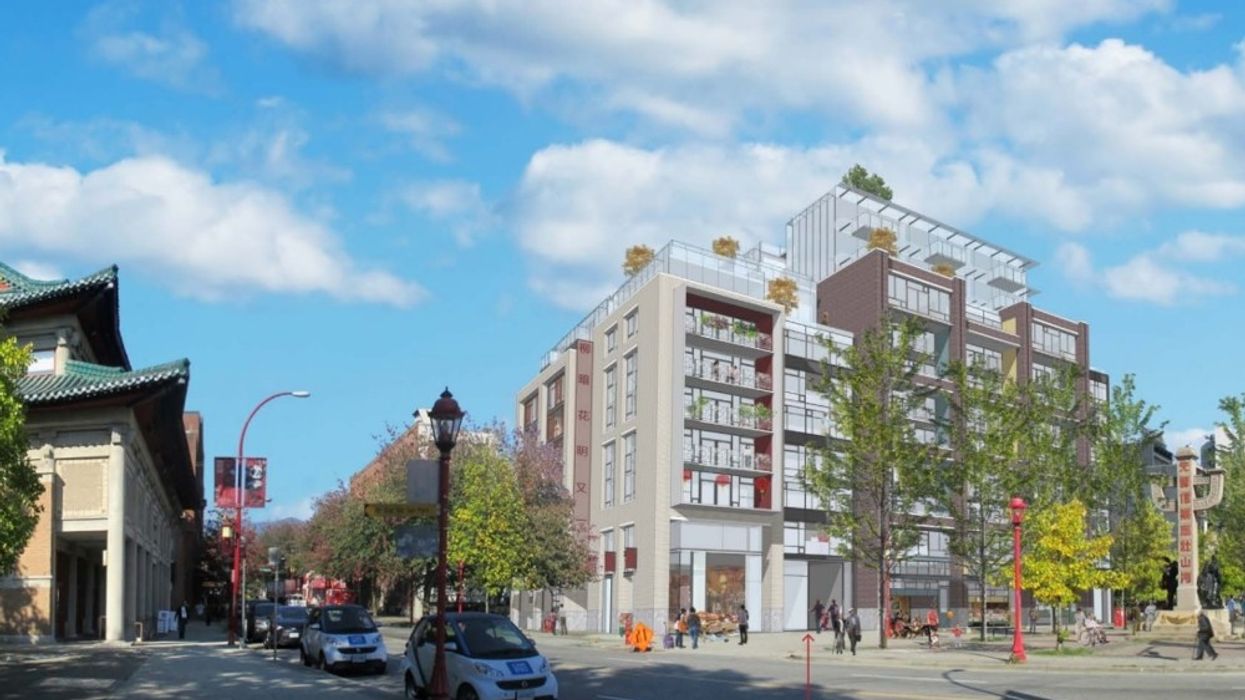The City of Vancouver Development Permit Board provided "inadequate" justification for rejecting a proposed Chinatown development, a BC Supreme Court judge said in a ruling dated Friday.
The proposal, submitted by BC-based Beedie for 105 Keefer Street, across from the Chinese Cultural Centre Museum, laid out plans for a nine-storey mixed-use building with retail space on the ground floor and 111 strata units above. Designed by Merrick Architecture, the building would have also included three levels of underground parking.
The 105 Keefer project can be traced back as far as September 2014, according to City of Vancouver archives. The application was revised multiple times, including in September 2015, April 2016, and December 2016. Originally, Beedie planned for a 13-storey mixed-use building with commercial space on the first two floors and 137 strata units up above.

The final iteration was rejected by the Development Permit Board on November 6, 2017, and in a letter to Beedie dated November 17, 2017, the Board said Beedie's application "does not comply with the regulations of the Zoning and Development By-law that affect the site" and "does not satisfactorily comply with the policies or guidelines that affect this site." The Board also noted that several nearby property owners raised objections to the proposed project.
Beedie v. City of Vancouver
Beedie's main grievances with the City were that the Board did not provide sufficient reasons for rejecting the application, had approved similar projects in Chinatown, "succumbed to political pressure in making its decision," and discouraged Beedie from seeking judicial review of the decision.
"Beedie says that the Board’s decision was made in bad faith and without affording Beedie procedural fairness [... and] that the decision is substantively unreasonable," Justice Jan Brongers said in his judgement.
The "political pressure" Beedie is referring to came from opponents of the project who believed that the development would gentrify Chinatown. One such opponent was the Chinatown Action Group, who said the 105 Keefer project was a "profit-driven development." Beedie also pointed to "the unruly and hostile attitude displayed" by people who attended both the open house for the project in September 2017 and the Board meeting the following month.
But in his decision, Brongers said that evidence of the City succumbing to political pressure was "circumstantial."
Meanwhile, the City denied the grounds of Beedie's petition, arguing that Beedie's judicial review application is untimely and should be dismissed for delay because Beedie didn't file for a judicial review until August 16, 2019 -- 21 months later -- and provided no satisfactory justification for the delay. Beedie said that argument shows the City's bad faith, pointing to the fact communications had taken place with the City in the intervening months.
READ: 7-Year Legal Battle Over Plaza of Nations Development Ended By Supreme Court
Beedie asked the Court to quash the Board's decision and grant them the development permit. Justice Brongers' decision, however, came somewhere down the middle.
"I do not agree with the City’s objection to the timeliness of Beedie’s application. I am also not persuaded that Beedie was denied procedural fairness by the Board, or that the Board’s decision to deny Beedie a development permit was made in bad faith," Brongers wrote. "However, I do find that the Board’s reasons for decision are inadequate, particularly given its highly unusual conclusion that Beedie’s application warrants being wholly rejected."
Brongers dismissed a majority of Beedie's allegations, but agreed with one -- that the Board did not provide sufficient justification -- enough to grant part of Beedie's petition, ultimately ordering the City to reconsider the application rather than order it to immediately grant the permit.
"It is incumbent upon the Board to reconsider whether the DP Application warrants being approved, approved with conditions, or refused outright," Brongers wrote. "If the latter, the Board must provide detailed and sufficient reasons to transparently explain why such a refusal is justified in the case of the DP Application, as opposed to the Board’s ordinary practice of approving applications subject to conditions that must be satisfied before the permit is issued."
Brongers framed his decision as a "divided success" for both parties, and therefore ordered both parties to pay their own legal expenses.





















